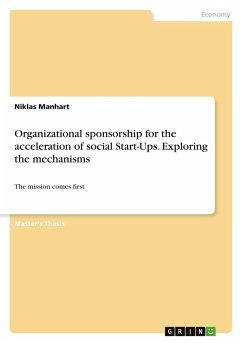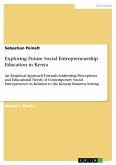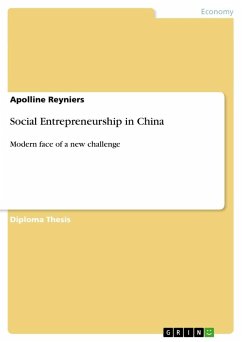Master's Thesis from the year 2021 in the subject Business economics - Company formation, Business Plans, grade: 1,0, Technical University of Munich (TUM School of Management), language: English, abstract: A significant number of incubators and accelerators have emerged to support start-ups aiming to solve societal or environmental problems. However, there is still limited understanding of how these ventures perceive the value proposition of incubators and accelerators ¿ and whether their support needs differ from those of conventional start-ups. This study utilizes the framework of organizational sponsorship to explore the acceleration of social start-ups. It is based on in-depth interviews with the founders of 10 start-ups from an impact-oriented incubator in Duisburg, Germany. Through an inductive study of multiple cases, this research generates three main insights. First, the social-mission focus of these ventures leads to significant differences as compared to commercial ventures in how they perceive incubator benefits. Second, social start-ups profit more from intangible resources such as social capital and knowledge than from tangible resources such as seed funding. Third, incubators and accelerators need to adapt their service offerings to address the needs of social start-ups. This study contributes to the understanding of entrepreneurial support by presenting a systematic assessment of incubator and accelerator services from the perspective of social start-ups. Its main theoretical contribution is to extend the organizational sponsorship framework by proposing a novel support mechanism: impact acceleration. It provides practical recommendations for not only funders and managers of incubators and accelerators but also social start-ups seeking entrepreneurial support.








